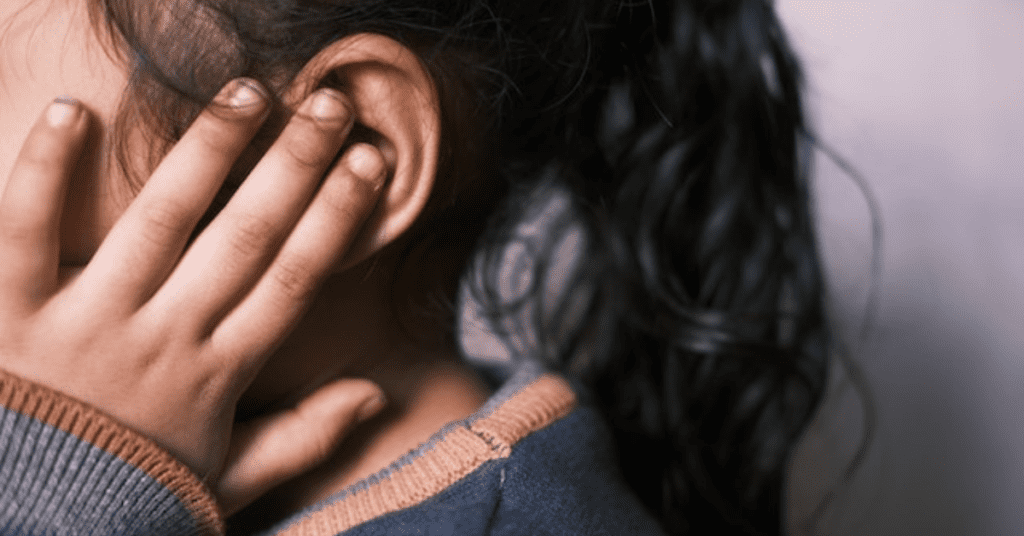Teething can be stressful for toddlers and often makes them uncomfortable. Many people believe that teething can be the cause of other health problems, such as ear infections. There has been alot of debate online about this topic, therefore, we have written this article to give you all the facts. That, therefore, begs the question, can teething cause ear infections?
Contrary to popular belief, teething does not cause ear infections. Bacteria and germs are primarily responsible, but the strain on nerves can make the ear region uncomfortable.
This article examines the possibility of teething causing ear infections.
What Is Teething?
Teething is a standard process of growth where babies’ primary teeth break through the gums. It mainly happens when babies hit six months, but that varies for some. A few babies may teeth later, probably in their 12th month. However, most may start teething two months before the conventionally known age, which is absolutely normal. Teething can span more than two weeks, but the pain should recede in a few days. It leaves a fresh wound on the most sensitive body part – the gums.
Teething can be painful and uncomfortable, and kids may struggle to articulate the feeling. While some parents may be aware, a few could take this discomfort for an ear infection, which it isn’t. As teeth bore through the gums, they cause fresh wounds and disrupt the nerves, which leads to sustained, excruciating pain that affects the ear region. That’s led many people to think that, perhaps, ear infections and teething occur as an existence of one another, which isn’t the case.


Are Teeth, Gums, and Ear Nerves Connected?
Dentists and otolaryngologists affirm that the ears, jaws, and gums are inextricably linked. Mostly, pain in the ear can suggest an imminent dental issue. The nerves that relay pain signals to the ear run through the jaw (particularly the upper jaw). That means wounded gums can trigger acute ear pain, making kids uncomfortable.
Nerves usually transmit pain too and fro, and that can be inexplicably quick. This means that pain in the gums can be felt in the ear and it’s easy to mistake it for ear problems. Also your child could be holding their ears to express their pain during teething, but that doesn’t always suggest that it’s actually an ear issue.
Does Teething Cause Ear Infections?
Experts have tried to demystify the misconception that teething can be the cause of ear infections. The truth is, teething does not cause ear infections. However, it’s seemingly an idea that’ll take some time to properly sink in, as most parents (especially new ones) are yet to learn.
So, what causes ear infections, then?
Bacteria and germs cause ear infections. Streptococcus pneumoniae is one of the notorious bacteria causing ear infections. Also, most viruses causing colds can lead to middle ear infections, which parents can detect by a runny nose, difficulty breathing, and a low-grade fever.
Teething and Ear Infection Signs: How to Tell the Difference
Teething and ear infections can overlap, making it easy to mistake the two. That’s expected, but it helps to discern the symptoms to understand your child better. Here are the various teething and ear infection symptoms you should be aware of:
How to Tell If Your Baby Is Teething
- Swollen gums that feel sore when you gently press against their jaw. This is due to the increased sensitivity in the area.
- They have flushed cheeks due to soreness, usually on the side.
- They gnaw and chew a lot.
- A mild temperature that doesn’t go more than 38 degrees Celsius.
- They have a rash on the face, which can sometimes be sore.
- They appear more fretful than they usually are.
- Alot of drooling and diarrhea.
How to Tell Your Child Has an Ear Infection
- Fluid building up and draining from the ear.
- Difficulty sleeping.
- Tugging or pulling the ear.
- Loss of balance.
- Challenges in responding to auditory cues.
- Fever.
- Persistent crying and feelings of irritability.
- Possible vomiting
Please note that a few signs might appear similar for both scenarios. Therefore, you should keep an eye on how the fever progresses and how frequently they tug or pull their ears. Furthermore, both situations may result in difficulty sleeping but it is more likely to be an ear infection if your child seems uncomfortable sleeping on one side.
Are Ear Infections and Teething Treatable?
Ear infections are treatable since they have a known cause. However, teething is natural and doesn’t have any treatment options. Regardless, you might want to offer them painkillers, but always ensure they’re sugar-free.
Here are a few other options for dealing with teething pain:
- Gently massaging the gums
- Offer a clean and cool washcloth for the baby to chew
- Wipe away excess drool to keep them as comfortable as possible.
- Give them chilled fruits if you’ve already introduced your child to solid food.
- Give them some extra warmth by cuddling them.


Teething should last for a few weeks, but the pain may disappear within days. Therefore, please clean the teething area using a soft bristle toothbrush and a damp clean cloth, but try to be gentle to prevent exacerbating the pain.
Ear infections, on the other hand, need treatment to prevent further damage and possible hearing loss. Usually, antibiotics come in handy for severe bacterial infections. Therefore, consulting your health provider is highly recommended. Doctors typically administer eardrops to destroy the bacteria populations in the ear. However, over-the-counter medications should treat the infection and relieve the pain. Your child should be okay within a few days.
Bottom Line
Teething doesn’t cause ear infections, even though it may appear like it to most parents. However, it can cause pain in the ear region since it’s connected to the jaw and gums. The nerves in this region can quickly transmit the pain such that it appears to emanate from the ear region.
Regardless, remember that the two conditions can coincide without a direct relation. While ear infections are treatable, teething is not; it’s natural and biological and is usually bound to happen. However, you can try your best to keep your child as comfortable as possible.
Read More: How to Put a Baby to Sleep in 40 Seconds?

